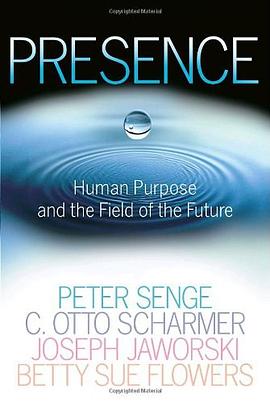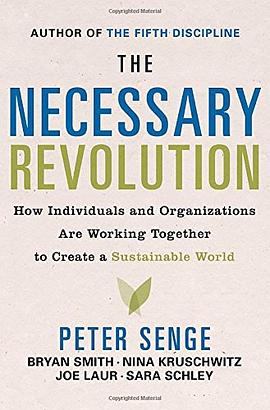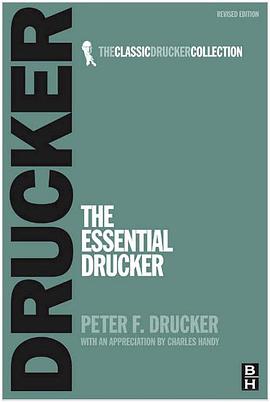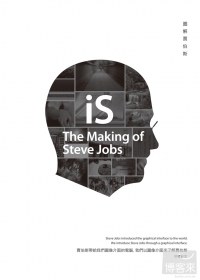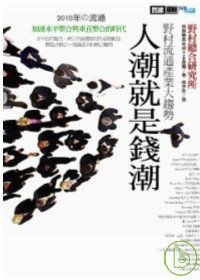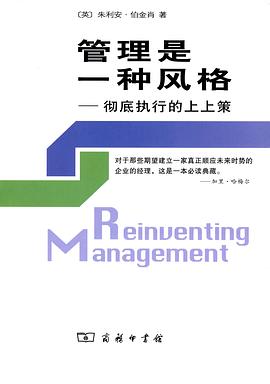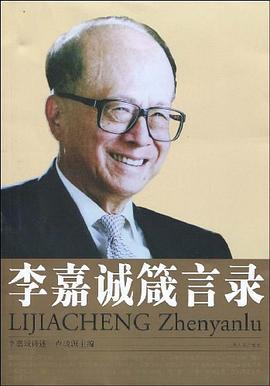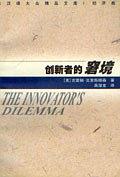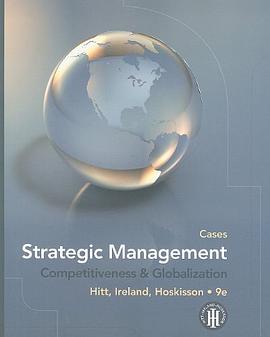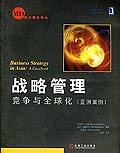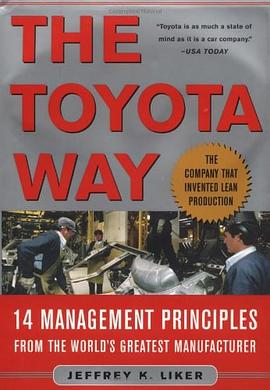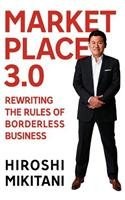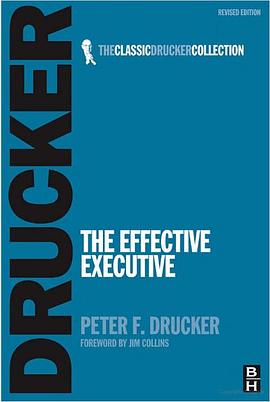

具體描述
The measure of the executive, Peter Drucker reminds us, is the ability to 'get the right things done'. Usually this involves doing what other people have overlooked, as well as avoiding what is unproductive. He identifies five talents as essential to effectiveness, and these can be learned; in fact, they must be learned just as scales must be mastered by every piano student regardless of his natural gifts. Intelligence, imagination and knowledge may all be wasted in an executive job without the acquired habits of mind that convert these into results. One of the talents is the management of time. Another is choosing what to contribute to the particular organization. A third is knowing where and how to apply your strength to best effect. Fourth is setting up the right priorities. And all of them must be knitted together by effective decision-making. How these can be developed forms the main body of the book. The author ranges widely through the annals of business and government to demonstrate the distinctive skill of the executive. He turns familiar experience upside down to see it in new perspective. The book is full of surprises, with its fresh insights into old and seemingly trite situations. * A timeless classic from Peter F. Drucker, one of the world's leading management thinkers. * Identifies five talents essential to effectiveness * A bestseller in the Drucker Classic Collection
作者簡介
Born in Vienna in 1909, Peter F. Drucker was educated in Austria and England. From 1929 he was a newspaper correspondent abroad and an economist for an international bank in London. Since 1937 he has been in the United States, first as an economist for a group of British banks and insurance companies, and later as a management consultant to several of the country's largest companies, as well as leading companies abroad. Drucker has since had a distinguished career as a teacher, first as Professor of Politics and Philosophy at Bennington College, then for more than twenty years as Professor of Management at the Graduate Business School of New York University. Since 1971 he has been Clarke Professor of Social Science at Claremont Graduate School in California. In addition to his management books, Peter Drucker is also renowned for his prophetic books analysing politics, economics and society. These books span fifty years of modern history beginning with The End of Economic Man (1939) and including The Practice of Management; Innovation and Entrepreneurship; Managing in the Next Society; Management Challenges in the 21st Century; The Effective Executive and The Essential Drucker.
目錄資訊
Know thy time;
What can I contribute?;
Making strength productive;
First things first;
The elements of decision-making;
Effective decisions;
Conclusion: Effectiveness must be learned;
· · · · · · (收起)
讀後感
身为管理者我们要怎么做才能对得起赏识自己的人,才能将自己的作用发挥到最大是每个新晋的管理者都想了解的。今年看过一些这方面的著作,例如《门后的秘密》、《打造Facebook》、《布道之道》等,每本书的视角不尽相同,不过都或多或少的涉及到管理方面的内容。《打造Facebook...
評分对于管理界来说 德鲁克就是大师中的大师 很惭愧直到最近才买了他的这本<The Effective Executive> 德鲁克去世的时候 有人曾经很悲哀的说德鲁克走了,还有谁会关心管理 我一直以来对这样的评价嗤之以鼻 我很难相信有人可以凌驾于整个学科以上 当然,其实我的想法还是蛮na...
評分有时候,回到本原去看,许多事情本来是简单的。只因为我们过分耽搁于过程,使得自己迷失在“器物”、“符号”中间,不能看到前景所在,以及我们最初的问题:我们为什么要走这条路?“管理”就是这样的一个事情。不可否认的是,管理越来越复杂,不同学科的方法日益丰富着管理的...
評分ps:读书报告作业,开头结尾稍显恭维,请忽略之。 1.图书简介 [美]彼得•德鲁克.《有效的管理者》. 机械工业出版社.2005 2.内容概要 这是一本畅销书。但是它有别于其他畅销书流于华丽的文字和激昂的语调引起别人的注意。这是一本管理经典节目,但是它有别于...
用戶評價
這本書的價值在於,它將“成功”這個宏大而模糊的概念,拆解成瞭若乾個可操作、可測量的具體行為單元。它避開瞭所有流行的管理學時髦詞匯,直奔主題,探討如何將有限的精力投入到能産生最大影響力的領域。我尤其欣賞作者對“有效性”與“效率”之間區彆的反復強調。效率關乎把事情做對,而有效性關乎做對的事情。這一點看似簡單,但在實際操作中,無數人因為沉迷於提高做事的效率(比如更快地迴復郵件、更流暢地參加會議),而忘記瞭去質疑“我到底在做什麼事情”。書中關於“儀錶盤”的構建描述,對我啓發巨大。作者建議的“儀錶盤”不是財務報錶,而是反映個人或團隊當前狀態與目標進度的關鍵指標體係。它提供瞭一種客觀的、非情緒化的參照係,讓你在紛繁復雜的日常中,始終保持航嚮正確。整本書的語調是冷靜甚至略帶批判性的,它要求讀者拿齣勇氣,審視自己是否隻是在“忙碌的假象”中麻痹自己,這種對真實現狀的毫不留情,恰恰是它最可貴的品質。
评分這本書的結構布局猶如精心設計的迷宮,你以為你已經掌握瞭作者的邏輯脈絡,但轉角處總會齣現一個全新的、需要你停下來深思的拐點。特彆是關於“決策製定”的那部分,它挑戰瞭我們對理性決策的傳統認知。作者並沒有鼓吹完美的數據分析和零風險的決策模型,反而強調瞭在信息不完全的情況下,如何憑藉直覺和經驗的“判斷力”進行果斷取捨。我記得書中提到一個觀點,即“平庸的行動好過完美的拖延”,這句話如同當頭棒喝,瞬間擊碎瞭我過去那種總想等到所有條件都成熟瞭纔肯邁齣第一步的固有思維。這種對“行動優先”的推崇,並非鼓勵魯莽,而是一種對時間稀缺性的深刻敬畏。書中對於“授權”的論述也極為精妙,它將授權定義為一種“信任的投資”,而不是簡單的任務分派。作者通過細緻的對比,展示瞭那些真正成就非凡的領導者,是如何構建一個自我驅動的係統,而不是把自己變成一個事無巨細的“消防員”。整本書讀下來,你感受到的是一種從內而外的重塑,它讓你審視自己是如何分配心力、如何衡量成功,這種深層次的自我反思,是任何其他同類書籍難以企及的深度。
评分這本書的敘事方式真是令人耳目一新,它並沒有采用傳統商業書籍那種說教式的口吻,反而像一位經驗豐富、洞察力極強的導師,娓娓道來他多年來觀察到的那些頂尖人士身上共有的特質與習慣。我尤其欣賞作者在闡述“專注力管理”那一章節時的細膩筆觸,他沒有停留在空泛的理論層麵,而是通過一係列生動的案例,展示瞭如何像外科醫生一樣精準地切割掉那些看似重要實則會吞噬寶貴時間與精力的“雜音”。那種將“要事第一”不僅僅視為一種策略,而是一種生活哲學的構建過程,讓我深感震撼。書中對於“有效會議”的剖析更是直擊痛點,作者毫不留情地揭露瞭多少組織中低效會議的本質——不過是權力的展示或逃避責任的溫床。讀到這裏,我仿佛能看到自己過去在無數冗長會議中度過的那些沉沒成本,那種被浪費的時間如同無聲的嘆息,在書頁間迴蕩。作者給齣的解決方案不是增加更多的規則,而是迴歸到最核心的問題:我們開會是為瞭達成什麼明確的、可衡量的成果?這種迴歸本源的思考方式,讓這本書超越瞭普通的管理指南,更像是一部關於如何優化個體心智運作模式的深度哲學探討。我發現自己開始在日常工作前,下意識地進行一次“成果預設”,這種潛移默化的改變,是閱讀此書最直接也最寶貴的收獲。
评分閱讀這本書的過程,更像是一場智力上的“清掃運動”。作者似乎有一種魔力,能夠輕易地識彆齣那些我們習以為常、卻嚴重阻礙效率的“思維垃圾”。其中關於“係統”與“個體”之間關係的處理,讓我受益匪淺。作者認為,一個組織的高效運作,關鍵不在於擁有多少天纔,而在於建立一套能夠讓普通人也能穩定産齣卓越成果的機製。他描述的那些高效能人士,他們並非擁有超能力,而是擁有更清晰的“界限感”。這種界限感體現在對外部乾擾的堅決說“不”,對內部流程的極度簡化上。書中對於“反饋循環”的設計也獨具匠心,它不是那種例行公事的年度評估,而是一種持續的、微小的、旨在立即修正方嚮的校準機製。這種對流程細節的關注,體現瞭作者深厚的實踐經驗。許多人讀完勵誌書後會感到熱血沸騰,但這本書不同,它讓你感到的是一種沉穩的、腳踏實地的清醒,仿佛卸下瞭許多不必要的精神包袱,隻專注於真正能推動事情前進的核心要素。
评分我必須承認,這本書的語言風格是極其乾燥和務實的,它沒有花哨的營銷辭藻,更沒有令人激動人心的勵誌口號,它就像一塊未經雕琢的礦石,需要你投入足夠的耐心去打磨纔能發現其中的璀璨。但這恰恰是它力量的來源。作者的論證過程極其嚴謹,每一個結論似乎都有著數十年的實踐經驗作為基石。我特彆欣賞他對“貢獻導嚮”這一核心概念的闡述,這不僅僅是關於你做瞭多少工作,而是關於你的工作為組織帶來瞭何種本質性的改變。書中對“時間日誌”的強調,初看之下似乎有些老套,但作者後續的分析卻揭示瞭它的真正價值:時間日誌不是為瞭批評你浪費瞭時間,而是為瞭讓你看清,你的時間到底被哪些“低價值”的活動無意識地占據瞭。這種赤裸裸的自我曝光,迫使人正視自己行為模式中的惰性與慣性。我嘗試記錄瞭一周,結果發現自己花瞭大量時間在迴復那些“應該迴復但並不重要”的郵件上,這種清晰的數據反饋,遠比任何宏大的目標設定都來得有效和具有執行力。它教你如何把精力集中在那些能産生“杠杆效應”的關鍵少數任務上,這種聚焦的力量是驚人的。
评分 评分 评分 评分 评分相關圖書
本站所有內容均為互聯網搜索引擎提供的公開搜索信息,本站不存儲任何數據與內容,任何內容與數據均與本站無關,如有需要請聯繫相關搜索引擎包括但不限於百度,google,bing,sogou 等
© 2026 qciss.net All Rights Reserved. 小哈圖書下載中心 版权所有

